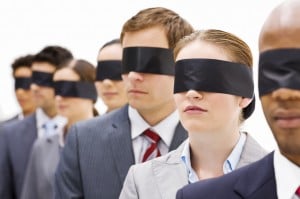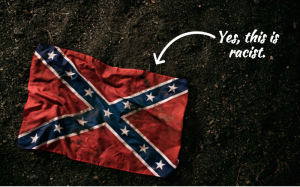
Source: She Knows
Character assassination. Stalking. Rape and death threats – all directed at women in the video game industry.
Over the last few months, violent bullying of female gamers has absolutely exploded in the public eye, creating a media storm and spreading alarm among women who play video games worldwide.
Game designer and feminist vlogger Anita Sarkeesian is one of many women who have borne the burden of this explosive anger – and perhaps the most well-known.
Sarkeesian is the author of Feminist Frequency, a popular video series commenting on women’s roles in various media outlets, including gaming. In her much-discussed series “Tropes vs. Women,” Sarkeesian suggests that gaming could be vastly improved by including more positive and strong female characters – and eliminating the negative portrayal of women as sexual objects to be saved or destroyed.
Seem like a valid argument to you? Not to some.
Although to you and me, this may seem like a reasonable and well-thought out request, she has subsequently been the recipient of terrifying death threats.
Just recently, she was forced to cancel a university speaking engagement about the portrayal of women in video games at because of an Internet threat of a mass shooting on campus, should the college allow her to speak.
So where is this deep hatred coming from? Who does it affect? How long has it existed in gaming? And what can be done about it?
These are questions that many people are asking – questions that deserve answers.
Because instead of ignoring the problem, as it has been ignored before, we have a duty to try to get to the bottom of this war on women in gaming.
Controversial from the Start
Video games and Internet gaming have long been a source of controversy in our society.
From worries that they increase a player’s tendency towards physical aggression to fears that they promote dangerous behavior and risk-taking, there are a lot of harsh critics of the gaming community out there already.
On the other hand, many tech-friendly educators of our digital age take advantage of the popularity of video games to create educational materials that kids will actually want to play. Other proponents argue that gaming creates a social, interactive environment that can actually aide socialization in players.
So is gaming good or bad?
Well, it’s not quite that simple. Nothing is. And no 2000 word essay can justly find a definitive answer to that question.
But regardless of where you stand on the issue, it is worth discussing the more sinister side of gaming that has come to the media’s attention over the last few months in the form of pure, unadulterated misogyny. Because that’s always bad news.
The Nice Boy Nerd Fallacy
It’s hard to talk about misogyny in gaming without discussing the Nice Guy™ concept, which is based on the idea that men who are nice to women should be entitled to romantic and/or sexual access to her.
Men who consider themselves “nerds” – as is often the case in video gaming culture – are frequently stereotyped as nice guys who respect women. In movies, they are generally depicted as sweet, loyal, culturally sensitive, great to women, and hyper smart – a challenge to hegemonic masculinity.
But let’s be honest: “Nerds” are not all nice. Just like “jocks” are not all drunk, chauvinistic, idiotic frat boys. These typecasts don’t often ring true when compared to real life.
And not to mention: Anyone who thinks that their niceness makes them somehow deserving of sex – rather than just, ya know, a decent human being – aren’t very nice. In fact, they’re reinforcing toxic masculinity with their entitlement complex.
Many male-dominated industries – like professional sports, Silicon Valley, and Wall Street – foster a culture of entitlement and sexism. What some people don’t realize, though, is that the gaming industry falls into this category as well.
Sexism in gaming is nothing new. It’s existed since the first games hit the shelves. However, these most recent, very public outbursts of violence and hatred towards women is the first time that activists have been able to bring it into the public eye and keep it there long enough to cause a (legitimate) fuss.
Entitlement in Gaming
Not every gamer hates women – far from it, actually. In fact, a new report shows that women make up about 48% of the gaming population. That’s right – almost half! This number has risen by a dramatic 40% in the last four years. But despite the shockingly high number of female gamers, there still exists a deeply sexist tone in many of the most popular games. It is clear that these games are created for men, by men.
Video games are stereotypically headed up with a male hero with only some games, like Mass Effect 3, allowing the player to customize as a male or female lead. And as the number of women in gaming grows, more female protagonists are appearing in games worldwide: Uncharted’s Elena Fisher and Chloe Frazier or The Walking Dead’s Clementine, for example – which is a huge step in the right direction.
However, women’s roles in video games are much more often subsidiary, subservient, and even frighteningly demeaning.
Whether the goal of a game is to save a beautiful and desirable princess from an evil villain in Super Mario Bros or an option in a game is to have sex with, punch, and then kill a female sex worker, like in Grand Theft Auto, there are innumerable portrayals of women in video games that grossly do not support women’s equality. And in doing so, they also fail to engender respect for women in the people that play them.
This lack of respect isn’t entirely surprising considering that the primary representations of women in gaming are either as sex objects or victims of male violence.
These tropes in video games perpetuate an attitude of entitlement and sexism among many male gamers – an attitude that is culturally imparted on them at birth and then fostered through a variety of means. These tropes help to ensure that gaming remains a “Boy’s Club,” despite the high number of female players and the many non-chauvinistic gaming advocates.
The Double Standard for Female Developers
Video game developer Zoe Quinn is no stranger to Internet harassment. One of the creators of Depression Quest, a free interactive fiction game that focuses on a young adult suffering from depression, she has been receiving threats of violence ever since the game’s release in 2013.
The reasons why are complicated. It seems that people are angry that a game has been created that pinpoints so accurately the fog that depression casts over a person’s life. The player must navigate through everyday life choices while dealing with clinical depression, thus making many options that a “happy” person might choose unavailable to them. Because stigma around mental health issues abounds, it’s unsurprising that a game that accurately depicts depression is receiving backlash.
But no matter what the reason, Quinn has suffered the brunt of this anger. The other creators of Depression Quest, writer Patrick Lindsey and musician Isaac Schankler, have not been subjected to anything as harsh as what Zoe has endured. As men involved in the gaming industry, it seems that they have received a “free pass” on an unpopular game that a woman was condemned for.
This double standard permeates the industry, making it much harder for female developers to reach the same level of respect as their male counterparts.
The Beginning of GamerGate
But there are other reasons why gamers have been threatening Quinn to the extent that she has to fear for her life.
Eron Gjoni, Quinn’s 24-year-old ex-boyfriend, is the man who lit the fuse on the explosive Internet war that is now called GamerGate.
After their breakup last summer, Gjoni wrote a blog post entitled thezoepost, lambasting Quinn and explicitly detailing the problems in their romantic relationship, which he attributes entirely to her.
In culmination, Gjoni accused Quinn of essentially exchanging sex for a positive review of Depression Quest. These claims have not been substantiated, as the reviewer, Nathan Grayson, never actually reviewed the game (let alone gave it a positive review), and only mentioned Quinn briefly in a blog post. Furthermore, the romantic relationship in question allegedly began after the publication of this blog post.
Still, the damage had been done.
And thus was born GamerGate, a disturbing battle against women in gaming.
Anonymous threats of violence and rape flooded Quinn’s e-mail inbox, and in August, all of her personal details (including her address) were exposed, forcing her to flee her house in fear.
The very fact that it is Quinn, not the male reviewer who supposedly violated ethical codes of reviewing, who is receiving death threats and has had to leave her own home, paints a clear picture of the double standard at work.
This is about threatening women in gaming; it’s not really about ethical standards, as has been claimed.
Whatever happened in their personal relationship, and no matter what we may think about either Gjoni or Quinn’s personal failings, there is absolutely no justification for the deeply misogynist backlash against Quinn and other female gamers and designers from the gaming community, culminating in such terrifying calls for physical violence.
GamerGate Is Misogyny at Work
GamerGate has morphed into an all-out war against women in the gaming community, reaching further than just Quinn, out to other female gamers like Brianna Wu (also forced into hiding due to threats of rape and murder) and Anita Sarkeesian, the author of Feminist Frequency and the victim of the mass shooting threat previously mentioned. Says Sarkeesian, “There’s this huge drive to silence us, and if they can’t silence us, they try to discredit us in an effort to push us out.”
And the intimidation is only becoming more pronounced.
The person who threatened to enact “the deadliest school shooting in American history” at Sarkeesian’s speech at Utah State University purportedly stated in an e-mail that “feminists have ruined my life and I will have my revenge, for my sake and the sake of all the others they’ve wronged.” Sarkeesian asked police to search lecture attendees for firearms, but was told that state law allows the carrying of concealed weapons.
Pause. Do we really think that if any male politician or public figure were to have their life threatened in such a way, that some preventative measures wouldn’t have been taken by police? Talk about a culture steeped in misogyny. Resume.
But after the media attention on GamerGate and violence towards female gamers, there’s no denying what is happening.
According to Sarkeesian “[I]f you’re involved in gaming in any capacity, you can’t help but see what’s happening in terms of women being driven out, women being attacked, being silenced, having horrific harassment and assault done to them.”
Although admittedly a simplification and not portraying the true severity of the threats involved, Sarkeesian’s statement that “GamerGate is really a sexist temper tantrum” rings true in many ways.
Everyday Female Gamers Suffer, Too
It’s not just the high-profile female developers that suffer from sexism in gaming. Everyday female gamers experience it, too, although usually to a less pronounced degree of violence.
In order to avoid sexual harassment, verbal abuse, and gender-related mistreatment, many female game players actually mute their microphones and avoid revealing their gender to their fellow players.
In “Playing with Privilege,” Josh McIntosh of Polygon, a gaming news site, explains how his male privilege affects his gaming experience. Says McIntosh, “I will never be asked or expected to speak for all other gamers who share my gender… When purchasing most major video games in a store, chances are I will not be asked if (or assumed to be) buying it for a wife, daughter, or girlfriend… Complete strangers generally do not send me unsolicited images of their genitalia or demand to see me naked on the basis of being a male gamer.”
These are just a few everyday examples of what some female gamers experience when they make the simple choice to play a game.
Of course, not all female gamers are harassed or condescended to. Many women experience friendship and camaraderie in gaming. But the fact that they even have to worry about these issues is indicative of the staggering double standard that exists in casual gaming.
Change Will Come – If We Keep Pushing
This is a fight against the patriarchal hold of a Boy’s Club mentality in gaming – and it can be overturned. Like any social justice advocate, I have to believe in the power of positive social change through action and intention.
Here are a few suggestions on how to fight back against misogynist gamers and GamerGate.
1. Speak out when you witness misogyny in gaming.
If you see people making sexist and/or violent statements while playing games, in chat rooms, or on gaming forums, call them out.
The Internet allows for something called the “online disinhibition effect,” which essentially means that hiding behind a computer screen enables people to do and say terrible things without feeling the true repercussions of them or having to feel guilty for their nastiness. This is something that comes from habit, but the more these assholes get called out for their sexism, the less they will be able to hide.
The Internet is not a closed book or a private journal. It is a public record of indiscretions. Simply reminding people that “we see you and your despicable hatred of women” is a step towards making these cowards stop in their tracks.
2. Share this open letter to the gaming community with everyone you know.
Although now closed to further signatures, the message is simple and clear: “We believe that everyone, no matter what gender, sexual orientation, ethnicity, religion, or disability has the right to play games, criticize games, and make games without getting harassed or threatened. It is the diversity of our community that allows games to flourish.”
The letter also encourages gamers to take action when they witness sexist or violent commentary or interactions in their community.
3. Spread awareness about male gaming privilege.
Ask your male gamer friends to read McIntosh’s entire post chronicling daily examples of male privilege in gaming. Hell, everyone should read it (it’s brilliant)!
If more male gamers learn about their own privilege, it will be much easier for them to recognize it and fight against it while playing.
***
Ultimately, this is not just a gaming problem, but a societal one.
The more that feminist and equal rights activists speak out against atrocities such as those committed against Sarkeesian, Quinn, and Wu, the more that people will pay attention and stop sweeping the issue under the rug.
The more that developers include strong female characters in their games, the more women will feel integrated into the gaming community.
The more that smart, introspective male gamers like McIntosh take steps to realize their privilege in gaming – and expose it to the rest of us – the less power that privilege will hold.
The gaming community by no means needs to remain an unsafe space for women. With cooperation from game designers, activists, and more education of the public, there is a bright future for an inclusive, respectful gaming community.
Because when my future daughters play video games, I hope they will be able to reveal their gender without fear of harassment – and that the games they are playing will include dignified representations of women. I’d like them to damn well know that they have other options besides “sex object” and “victim of male violence.”
Gaming is supposed to be fun, after all.
[do_widget id=”text-101″]
Danica Johnson is a Contributing Writer at Everyday Feminism and the Communications Manager at the Coalition on Human Needs, an alliance of national organizations working together to promote public policies addressing the needs of low-income and other vulnerable populations. Living in Washington, DC, this West Coast native uses her free time to write for her blog Duckyfem, practice yoga and spend as much time with animals and in nature as possible. Follow her on Twitter @duckyfem and read her articles here.
Search our 3000+ articles!
Read our articles about:
Our online racial justice training
Used by hundreds of universities, non-profits, and businesses.
Click to learn more




















